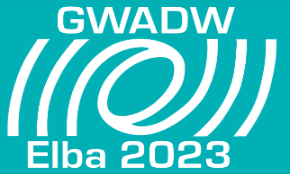Speaker
Description
This study investigates the use of strong lensed gravitational waves (GWs) to constrain the mass of the graviton, a crucial parameter in fundamental physics. By simulating lensing by point mass lenses of various masses (400, 4000, and 4000000 solar masses) and a singular isothermal sphere (SIS) model with a mass of 4000000 solar masses, we calculate the strain of GWs and show that the signal-to-noise ratio (SNR) of the lensed signal would be significantly improved, particularly for the next-generation GW detector, the Einstein Telescope (ET). Unlensed signals would also be improved by a magnitude of 250 compared to Advanced LIGO O4 with the next-generation spaced-borne GW detector, the DECi-hertz Interferometer Gravitational wave Observatory (DECIGO). The study suggests that the DECIGO would provide a more significant advantage for improving the SNR of the lensed GW signals as the mass of the lens increases. Furthermore, the study estimates the expected constraint on the mass of the graviton using the next generation of space-based and ground-based GW detectors. These findings highlight the potential of wave effects of lensed GWs for improving the SNR and constraining the mass of the graviton, which has significant implications for fundamental physics research.

